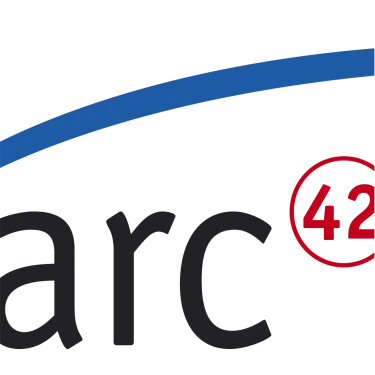We stand with the people of Ukraine
Please assist humanitarian efforts for the Ukrainian people and those affected by the military invasion of Ukraine by supporting international aid organizations, including the International Committee of the Red Cross.
Table of Contents
- Support & Sponsors
- About the Author
- Acknowledgements
- Color Scheme
- Tooling and Build
- Content Analytics
- Pageviews and Visitor Count
INNOQ supports this site.
INNOQ supports creation and maintenance of this site and the whole arc42 ecosystem. Thanx a lot, this support is highly appreciated.
About me (Gernot)
![]()
My name is Gernot Starke. I’m:
- happily married, we have two (grown-up) kids and live in Cologne, Germany.
- Fellow at INNOQ,
- Coaching and consulting medium and large-scale enterprises on topics around software architecture and methodical software engineering.
- Co-founder and maintainer of arc42, the template for pragmatic and systematic software architecture documentation.
- Founder of aim42, the open-source framework for systematic software architecture improvement.
- Active member and working group lead within the International Software Architecture Qualification Board, iSAQB.
- Trainer for the iSAQB curriculum (modules FOUNDATION, IMPROVE, REQ4ARC and ADOC).
- Regular speaker at IT-conferences.
- Author and co-author of more than a dozen books on software architecture, patterns, arc, and the like. Most of these books are written in German. Take a look at Leanpub for some of my English books.
- Author of quite a few articles
Acknowledgements
- Thanx to Michael Mahlberg, Peter Hruschka, Markus Meuten and Daniel Lauxtermann for suggestions, bug fixes and moral support.
- Thanx to Steffen Späthe for his intense reviews and constructive comments concerning the content.
- Thanx to Dr. Alexander Lorz and Dr. Michael Sperber for intense discussion around quality.
- Thanx to Per Starke for his awesome technical support in things around Liquid and Jekyll.
-
Thanx to Remko Plantenga @exde3297, Martin Weck @martinweck, Eberhard Wolff @ewolff, Paul Boeck @PapaBravo, Dean de Bree @ddebree, Markus Stier @mstier, Fabian Angst @angstitc for their contributions.
- Numerous issues and PRs were fixed with support by GPT-5, Claude-Sonnet and Gemini-2.5 Pro. These LLMs know css definitely better than I do.
Find the complete list of contributors here
Color Scheme
This site uses a simple color scheme to distinguish between the main content types.
Text: #003366
Text: #8b0000
Text: #2C3E50
Text: #4A148C
Text: #1B5E20
Practices, patterns, tactics, strategies to achieve and support the qualities.
Tooling and Build
- This page is based upon Jekyll, a static website generator.
- It uses a modified and modernized version of the Ttskch theme.
- It’s maintained on Github and published via github-pages.
- A Docker container provided by Bret E. Fisher for local build- and test of the site.
-
In case you want to run the site locally, use
docker compose upafter cloning the repo locally. - build_revision: 2a11997e71b2feb067e0c5d8ae5729251ae4fcc7,
- last built and published on Thu Feb 19 10:50:30 2026
Content Analytics
Here we analyze our content, especially the links between content elements. In the long run we aim at having everything well-connected:
- Every quality is associated with at least one (high-level) property (check: Qualities without Tag)
- Every quality has relations to other qualities (check: Orphan Qualities)
- We have a method for synonyms in place.
- Every quality has at least one specific requirement (check: Qualities without Requirements)
- The list of related qualities (
related:) in the header of every quality file contains only existing qualities (check: No orphan relations for qualties) - Every standard relates to one or multiple qualities (check: No Standard without Qualities)
Qualities without Tag (aka property)
All qualities in this site have at least one tag defined (excluding synonyms, which inherit tags from their canonical entry).
Orphan Qualities
All qualities in this site have at least one directly related quality defined (excluding synonyms, which inherit relations from their canonical entry).
Synonyms
We maintain a list of quality attribute synonyms where multiple terms refer to the same concept. This helps consolidate duplicate content and provides clear redirects for alternative terminology.
See our complete Quality Aliases and Synonyms mapping for details.
Total synonym pairs: 21
The synonym system ensures:
- Canonical terms have comprehensive content and definitions
- Graph visualization shows single nodes with multiple labels
Qualities without Requirements
The following 42 qualities currently have no requirements directly related to them (excluding synonyms):
Attractiveness, Co-existence, Communicability, Conciseness, Controllability, Credibility, Data Localization, Data Residency, Data Sovereignty, Determinism, Devops-Metrics, Diagnosability, Discoverability, Distributability, Durability, Effectiveness, Energy Proportionality, Expected physical environment, Faultlessness, Features, Functional suitability, Functionality, Immunity, Interchangeability, Legal Requirements, Longevity, Operational constraint, Operational and Environment Requirements, Personalization, Provability, Replaceability, Reproducibility, Safe integration, Securability, Self-containedness, Self-descriptiveness, Simplicity, Test Coverage, Themability, Upgradeability, User engagement, Versatility,
No orphan relations for qualities
Explanation: Every quality has a field
related:in its header, which contains the names of related qualities. Here we check forrelated:fields containing non-existing entries.
All quality relations reference existing qualities - no orphan relations found.
No standard without qualities
Every quality standard (like ISO-5055) shall have at least one or more qualities related to it.
The following 2 standards have no qualities related to them:
Pageviews
Stats powered by Plausible Analytics
